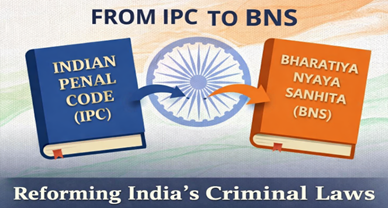The Challenges around Regulating Shell Companies in India.
Shell Companies:
Shell companies are mostly companies that have no real operations, employees or assets. These companies are often reffered to as ghost companies since they have no actual premises or existence. These companies merely posses’ names and cannot be linked easily to the individual that owns such companies, such companies are often created with the intention to hide or conceal the owner’s identity from the Police, other businesses, or general public.
These companies are often known to be set up for illegitimate purposes by fraudsters to avoid paying taxes, hiding illegal funds, or money laundering. In the past many business men in India have also been accused of setting up shell companies in order to show the tax or other authorities their sources of income as genuine by circulate their black and converting it into white money arising out of legitimate sources.
Most often they are also set up by Individuals and companies for tax benefits or avoidance as well in places such as Monaco, Mauritius, and Panama Islands which are some of the well-known “Tax Heavens”.[1] The Panama papers, which leaked the financial information of multiple businessmen, politicians & other high ranking government officials. These leaks were one of the biggest reports which exposed the Billionaires around the world who were accused of money laundering and avoiding taxes in their country by opening offshore accounts in Panama islands and holding all of their wealth there, due to its favourable tax systems.[2]
Why do Individuals choose these countries as tax heavens?
Tax heavens are the best places to open offshore accounts, it is one of the best ways to managing & diversifying your assets. Off shore accounts in such countries help maintain privacy and security since the data privacy laws are stringent and highly favourable to the wealthy. Panama, Hong Kong, Switzerland, & Mauritius are some of the most well-known tax heavens due to their data privacy laws, due to which other countries cannot access the financial information of individuals holding accounts in such countries.[3]
How do offshore accounts benefit tax heavens?
The biggest question might be regarding the legality of such accounts but the other question is why do these countries allow for offshore accounts to be opened in their country? One of the biggest reasons being the economic benefit. If one observes, most of these countries prior to having favourable tax systems were financial unstable and had poor economies. One of the biggest advantages to the Tax heavens from off shore accounts are the economic benefit to them, and also brings in more foreign investment options.

This also brings in more tourism and more residents to the countries significantly growing their GDP. Monaco is one such example, it has become a hub for the rich leading extravagant lifestyles, despite being the smallest country their GDP packs a punch. Owning to its Income Tax liberalization in 1869, it has become a hub for the wealthy to open offshore accounts as a result of which the infrastructure & development of Monaco rapidly took place.
Off shore accounts have also helped bring in political & financial stability to countries such as Cuba, where prior to their Tax liberalization political parties kept crumbling within their own country due to civil wars but when there were more foreign investments brought in via off shore accounts, people had more employment opportunities at banks & other establishments which ultimately resolved their issues of poverty.
What are the challenges in regulating Shell Companies?
The main issue with regulating “shell companies” in India is the lack of definition, no act or regulatory framework defines what a shell company is. When the law by itself does not define something, it is hard to regulate it. For example, if the constitution or the law does not define who a “citizen” is and who an “Individual” is it would be impossible to appropriately apply the fundamental rights enshrined in the Constitution of India, to the people allowing them to enjoy their right. Similarly, it is important and necessary for shell companies to be defined in order to regulate them.
It is not that the Governments efforts have gone unnoticed, the Government through the MCA (Ministry of Corporate Affairs) under the guidance of SEBI (Securities Exchange Board of India) has issued several guidelines as to identifying what companies qualify as shell companies and what are the requirements a company needs to fulfil in order to not qualify as a shell company.[4] However, the determination of shell companies using these guidelines uses a lot of time, man power, and resources as there is no efficient way as of yet.
India being one of the countries at the forefront of striking down or punishing Tax offenders, Money launderers and other fraudulent individuals. However, it has failed in regulating shell companies set up by Indian Citizens and shell companies set up in India and currently there are no legislations or regulatory framework governing shell companies in India. However, the Government has taken cognizance of the issue and is regulating shell companies indirectly by other legislations such as Indian companies Act 2013, Income Tax Act 1961, Benami Transaction Act 1988 & the PMLA 2002.
Yet these provisions, committees, and task forces set up by the Indian Government have not completely tackled the issue of shell companies. Although they have taken a few steps in the right direction, wherein in the year 2017, the Government under the joint chairmanship of the Revenue Secretary and Secretary, Ministry of Corporate Affairs (“MCA”) had set up a task force against shell companies in February.
The Prime Minister’s office [5] “Mandated to check in a systematic way, through a coordinated multi-agency approach, the menace of companies indulging in illegal activities, including facilitation of tax evasion and commonly referred to as “shell companies”. These measures have not been sufficient in curbing the issue of shell companies.
The lack of defining shell companies has caused great havoc in India in the past, for example the Vivo India Scam, where in Vivo India had been siphoning money from its Indian establishments to China avoiding any tax payments in the name of buying parts from parent company. When the ED began investigating the said establishments in India, most of them were shell companies with no known addresses or owners.[6]
Current Provisions & Regulations in Place to strike down shell companies:
Currently although there are no specific legislations dealing with the issue of shell companies, the legislature has introduced various checks and balances in order to temporarily address and prevent the setting up of shell companies in India.
The Benammi transactions (prohibition) act prevents anyone trying to hold assets under a fake name to avoid taxes. Furthermore, it prevents any transactions done under a fictitious name. therefore, every individual including companies must disclose their information while making any transactions making it less suitable for shell companies to carry out illegal transactions. Further, the PMLA restricts anyone from engaging in any form of illegal activities such as money laundering via shell companies in order to convert their black money and show it as income from legitimate sources.
the companies Act, 2013 also has various provisions wherein the Registrar of Companies (RoC) has various powers to strike off shell companies under section 248 of the Act. If the company has not carried out any operation within 2 years from its incorporation & has failed to apply for the status of a dormant company u/s 455, the Registrar may strike of the company from the register if he has reasonable grounds. Further, Section 12 (9) empowers the registrar to physically visit the premises of the registered office of the company to verify whether the operations are being carried out as stated in the application, if the registrar has reasonable cause to believe the company has not been carrying out business.
Furthermore, Rule 25B strengthens the registrar’s position even more firmly in taking down shell companies with the introduction of Rule 25B of the Companies Incorporation Rule 2014, enables the Government to scrutinize the companies at their initial stage itself at the time of incorporation by allowing the registrar to physically verifying the registered office of the company and collecting other necessary documents in support of the same to prepare a report.
Conclusion:
The practice of setting up shell companies for illegal activities is becoming more and more common. Offshore tax havens hold the equivalent of 10% of the global GDP. Due to the lack of regulations and the lack of clarity provided by the Government shell companies have not only had a negative impact on the Indian economy but has led to a significant rise in white-collar crimes and has put the Shell companies in a grey area where they can be set up legally but to carry out illegal business activities which are morally wrong.
The issue of shell companies in tax heavens can be resolved by a more transparent approach between countries, i.e. only when there is an exchange of financial information on accounts & other details between countries can the issue of corporate tax avoidance and money laundering be prevented. This can be done by the way of friendly treaties or coming under one umbrella of a Global Tax system. Entering into such treaties might be beneficial to both countries trying to curb the issue of corporate giants getting away with not paying taxes as well as strengthening diplomatic relations.
An amicable solution with regards to the global issue of tax evasion can be reached by integrating countries and moving toward Global Tax system, we would need to implement a more widely accepted transparent form of measures with regards to taxation.
The MCA needs to begin by defining shell companies in order to regulate such entities and bring them under the ambit of Indian Companies Act, 2013. This would be a step in the right direction of striking down shell companies and preventing their misuse. Furthermore, regulating such companies more strictly is the need of the hour, since the GDP of India continues to take a hit as money is laundered and several individuals avoid apaying taxes using such Ponzi schemes.
Author:– K. N. Rahul Prasad, in case of any queries please contact/write back to us at support@ipandlegalfilings.com or IP & Legal Filing.
[1] Jancsics, David. “Shell companies and government corruption.” Global Encyclopedia of Public Administration, Public Policy, and Governance (2018): 4-21.
[2] Rettig, C.P., 2016. The Panama papers and lessons learned from years of offshore leaks. J. Tax Prac. & Proc., 18, p.19.
[3] Dharmapala, Dhammika, and James R. Hines Jr. “Which countries become tax havens?” Journal of Public Economics 93.9-10 (2009): 1058-1068.
[4] Ministry Of Corporate Affairs, 3,82,875 number of companies struck off three years up to financial year 2020, issued on 9th March, 2021.
[5] Press Information Bureau, Government of India Ministry of finance “Task Force on Shell Companies takes pro-active and coordinated steps to check the menace of shell companies” on 8th June, 2018.
[6] Enforcement Directorate Press Release 07.07.2022 Note on searches by ED at Vivo India, GPICPL and Others.


